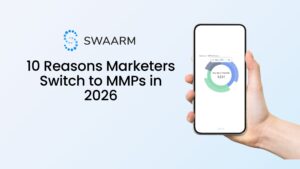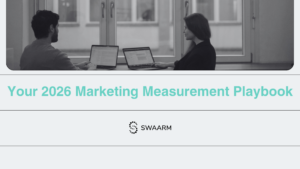Following up the series of 2024 trends, technology continues to reshape the digital marketing landscape and businesses must adapt to stay competitive in 2025. The intersection of AI, privacy, and innovative technologies will drive the biggest changes in search monetization, lead generation, and iGaming.
10 Digital marketing trends for 2025 in Search Monetization, Lead Generation, and iGaming
1.AI-Driven Marketing Automation
Artificial Intelligence (AI) is revolutionizing digital marketing, and 2025 will see its role expand even further. AI will power hyper-personalized campaigns by analyzing vast datasets in real time, enabling more effective targeting and higher engagement.
In search monetization, AI can predict user intent with precision, ensuring that ads appear at the right moment. For instance, an AI-driven platform might display native ads for fitness gear immediately after a user searches for “home workout plans.” Similarly, predictive analytics in lead generation can prioritize high-value prospects, while AI chatbots engage potential leads with personalized conversations at any time.
For iGaming, AI can personalize recommendations by analyzing player behavior, suggesting games that align with individual preferences. This not only enhances the user experience but also drives retention—a strategy akin to how Spotify’s algorithms create customized playlists to keep users engaged.
2. Privacy-Centric Marketing
With data privacy regulations like GDPR and CCPA becoming stricter, 2025 will demand transparency and ethical data handling. Marketers will need to adopt privacy-first strategies to earn consumer trust while complying with legal requirements.
Search monetization platforms will shift toward cookieless tracking methods and server-side solutions to deliver targeted ads while protecting user data. Lead generation will rely heavily on opt-in strategies, offering clear value in exchange for user information. For example, a SaaS company might provide a detailed eBook on industry trends in return for an email address.
In the iGaming sector, compliance with data security regulations will be critical. Operators may integrate advanced verification tools, such as age and location checks, to ensure a secure and legal gaming environment. Apple’s App Tracking Transparency framework has shown how prioritizing user consent can lead to stronger consumer relationships—a lesson all industries can learn from.
3. Search Monetization Expands
Search monetization will extend beyond traditional search engines, with platforms like TikTok, Instagram, and AI-driven assistants offering new opportunities. Voice search, for instance, is expected to become a major channel. Imagine asking Alexa for a recipe and receiving a sponsored suggestion for a kitchen gadget alongside the instructions.
In addition to these emerging channels, diversifying traffic sources will be essential. Brands can tap into platforms such as TikTok, where search functionality is increasingly being used to discover products and services. For instance, a fashion retailer could monetize TikTok searches by running ads that direct users to its latest collection.
4. iGaming’s Rise in Emerging Markets
The iGaming industry is set to thrive in emerging markets, driven by increasing internet penetration and evolving regulations. By 2025, companies will focus on localized campaigns to connect with new audiences.
Operators targeting countries like Brazil or India can customize campaigns by incorporating local languages, payment methods, and cultural nuances. During Brazil’s Carnival, for example, an iGaming platform might offer promotions featuring celebratory themes to resonate with players. Gamified lead generation strategies, such as offering free spins or exclusive bonuses, will further enhance engagement.
5. Cross-Channel Integration
In 2025, effective marketing campaigns will integrate multiple channels, providing a seamless user experience. This approach enables marketers to track customer journeys across platforms and devices, ensuring consistency in messaging.
For search monetization, integrated dashboards can help optimize ad performance across Google, Bing, and alternative search platforms. Meanwhile, a webinar-driven lead generation campaign could follow up with personalized social media ads, emails, and blog content to nurture prospects.
In the iGaming world, operators might leverage partnerships with platforms like Twitch to cross-promote games. For example, a gaming company could sponsor a live-streamed tournament, encouraging viewers to sign up directly from the stream.
6. Creative Video Ads Rule
Video content will dominate digital marketing in 2025, with short, interactive formats leading the way. Brands will use video to tell compelling stories, demonstrate products, and build emotional connections with audiences.
Search monetization platforms like YouTube and TikTok are ideal for video ad placements. Imagine an interactive video ad showcasing a cooking demo that lets viewers click to purchase ingredients directly. Similarly, lead generation campaigns can use video testimonials to highlight customer success stories, building trust and encouraging sign-ups.
In iGaming, live gameplay videos and behind-the-scenes content will help platforms attract and retain users. For instance, a poker site might release a tutorial series featuring professional players, making the content both educational and entertaining.
7. The No-Code Revolution
No-code platforms are empowering marketers to create and implement complex strategies without needing technical expertise. In 2025, these tools will be indispensable for streamlining workflows and accelerating campaign execution.
In search monetization, no-code solutions can simplify the creation of ad creatives or landing pages, allowing teams to iterate quickly. Lead generation campaigns will benefit from tools that enable rapid A/B testing of forms, CTAs, and landing pages to maximize conversions.
For iGaming, no-code event tracking tools will make it easier for operators to monitor user actions, such as in-game purchases or level completions. Tools like Canva and Zapier demonstrate how no-code technology can level the playing field, enabling smaller teams to compete effectively with larger enterprises.
8. Sustainability in Digital Advertising
Consumers are increasingly demanding eco-conscious practices from brands, and this trend will influence digital marketing strategies in 2025.
Search monetization platforms can adopt energy-efficient ad delivery methods, reducing the environmental impact of campaigns. Lead generation efforts can emphasize sustainability, using green initiatives as a key selling point. For instance, a brand offering eco-friendly products might highlight how each sale contributes to reforestation projects.
In iGaming, operators can build trust by promoting responsible gaming initiatives and showcasing their sustainability commitments. Patagonia’s marketing, which emphasizes its dedication to the planet, serves as a benchmark for how companies can align their brand with eco-conscious values.
9. Advanced Analytics for Precision Marketing
2025 will see the rise of advanced analytics tools that provide marketers with actionable insights in real time. These tools will be crucial for refining strategies and maximizing ROI.
Search monetization platforms will use real-time bidding and predictive analytics to adjust ad placements dynamically. Lead generation teams can leverage analytics to identify bottlenecks in the sales funnel and implement targeted fixes.
In iGaming, behavioral analytics will help operators tailor promotions to individual players. For example, a casino platform might analyze a user’s activity to offer personalized bonuses for their favorite games, driving both engagement and loyalty.
10. The Evolution of Influencer Marketing
Influencer marketing will continue to evolve in 2025, with micro-influencers gaining prominence for their ability to connect with niche audiences.
For search monetization, influencers can drive traffic by incorporating affiliate links into blog posts or social media content optimized for search engines. Lead generation campaigns will benefit from collaborations with influencers who align with the brand’s target audience.
In iGaming, platforms like Twitch and YouTube will be instrumental. For example, a gaming operator could partner with a popular streamer to showcase new features, encouraging viewers to sign up and play. The authenticity and engagement of these partnerships make them a powerful tool for driving conversions.
Summing up the year ahead
As we step into 2025, the digital marketing landscape continues to evolve at an unprecedented pace. From AI-driven automation and privacy-first strategies to the growing influence of video content and sustainability, businesses have numerous opportunities to innovate and grow. Whether you’re optimizing search monetization strategies, generating quality leads, or tapping into the thriving iGaming market, staying ahead of these trends will be crucial. By embracing these shifts, marketers can connect with audiences in meaningful ways, drive results, and thrive in an ever-changing digital world.
Let us know which of these trends you’re most excited to explore in 2025!



